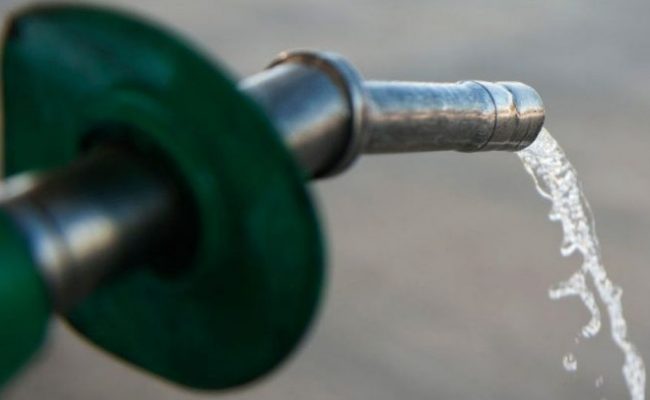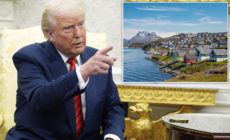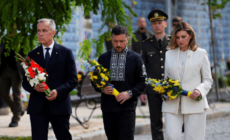Oil soars past $100 after Russia orders troops into Ukraine
- Posted on
- Comment

Oil prices have surged past $100 (£74) a barrel after Russian President Vladimir Putin launched a “special military operation” in the eastern Donbas region of Ukraine.
The price of Brent crude hit $102.30 a barrel at one point, the highest level for more than seven years.
Russia is the second biggest exporter of crude oil, and is also the world’s largest natural gas exporter.
Stock markets fell, with the UK’s FTSE 100 index opening down more than 2.6%.
Earlier, stocks in Asia and had fallen sharply, while the Moscow Exchange suspended trading shortly after the rouble plunged to its lowest since early 2016.
The price of gold – which is considered a haven asset in times of uncertainty – rose 2%.
Tina Teng, an analyst at CMC Markets, said: “We could see [oil] prices keeping the momentum.”
Most of the oil and gas that the UK imports does not come from Russia, but it would nonetheless be affected by a rise in global prices.
Sanctions moves
In response to Russia’s military action, European Union leaders said they would put more sanctions in place on Russia.
The European Council said it would “impose massive and severe consequences on Russia for its actions”.
The US and EU had already imposed a series of sanctions in response to Mr Putin’s actions against Ukraine.
The UK has frozen the assets of five banks and three Russian billionaires, who have also been hit with travel bans.
On Tuesday, Boris Johnson said these sanctions were a “first barrage” and could be extended.
However, Yeap Jun Rong, a market strategist at IG, said: “The moves by Russia suggest economic sanctions are not having any significant impact in holding off aggression.
“With retaliation measures coming from Western powers soon, it seems that the situation may show no signs of easing,” he added.
The US increased also increased pressure on Russia on Wednesday by imposing penalties on the Russian firm behind the Nord Stream 2 gas pipeline and its corporate officers.
Nord Stream 2 is a 1,200km pipeline under the Baltic Sea, which is designed to take gas from the Russian coast near St Petersburg to Lubmin in Germany.
On Tuesday, Germany froze final approval for the pipeline, which has been built but is not in operation.
BBC










 (Selorm) |
(Selorm) |  (Nana Kwesi)
(Nana Kwesi)